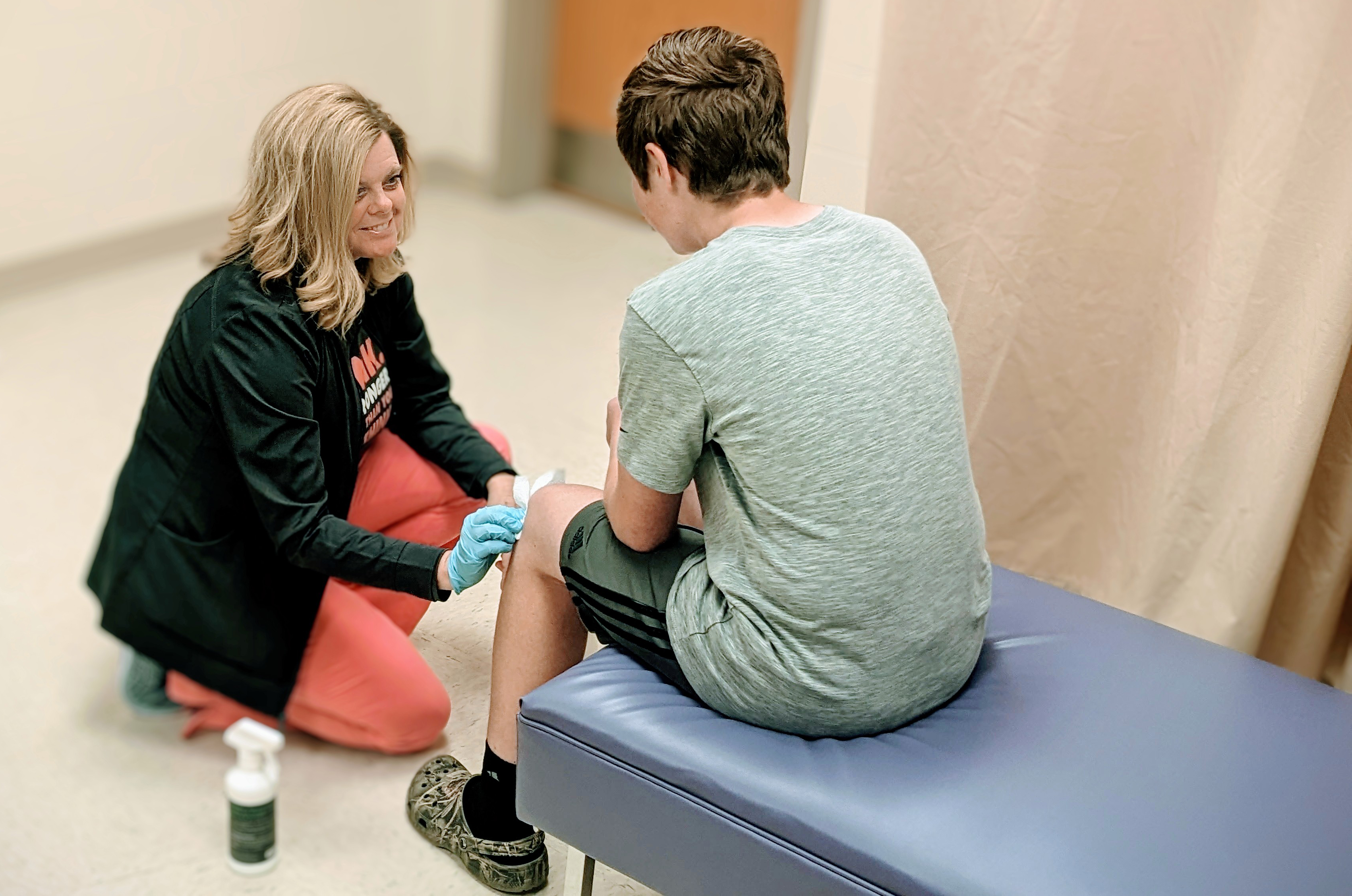CDCSD Nurse
(563) 659-0715
Email Ann Bixby
Health Services

Insurance
Iowa offers Hawki health coverage for uninsured children of working families. No family pays more than $40 a month. Some families pay nothing at all. If your child qualifies for Hawki health insurance program, your child will get all the benefits of his or her health care services through a managed care organization (MCOs) of your choice.
Click here to learn about the Hawki (Healthy and Well Kids in Iowa) Program.
Forms
Illness at School
Deciding when to keep a sick child home from school is not always easy. Regular school attendance is important. But when a child is truly sick, they need to stay home in the care of an adult to get well and to prevent spreading illness to others. The information below may aide you in the decision of whether or not to keep your child at home, but it is best to consult with your family physician if you are unsure.
Students with a communicable disease will be allowed to attend school provided their presence does not create a substantial risk of illness or transmission to other students or employees. The term "communicable disease" shall mean an infectious or contagious disease spread from person to person, or animal to person, or as defined by law. (507.3)
FEVER OF 100.4 DEGREES OR HIGHER
A fever is a sign of illness and a child with a temperature of 100.4 degrees or higher should not attend school. The child should be free of fever, without fever-reducing medication, for 24 hours before returning to school.
SORE THROAT/COLDS/COUGH
Minor cold symptoms are common and usually don't interfere with school attendance. A persistent, frequent cough and/or constant nasal drainage may affect your child's performance at school, and he/she may be more comfortable at home. Most sore throats are caused by viruses as seen in colds or seasonal allergies. However, for children between the ages of two and eighteen, there is a risk to develop “strep” throat. The only certain way to diagnose “strep” throat is with a throat culture. The physician will usually prescribe an antibiotic such as penicillin and your child should stay out of school at least 24 hours after the medication has started.
VOMITING/DIARRHEA
A child who has vomited should wait 24 hours and be able to retain solid foods before returning to school. A child who is having frequent diarrhea stools should not attend school. If there is cramping/abdominal pain with diarrhea, the student may be more comfortable at home. However, if your child is sick for more than three days, you may need to seek medical advice.
PINK EYE
Most eye infections are highly contagious. Symptoms include redness of eyes or eyelids, crusting of lashes and/or drainage from eyes. This infection is spread by hand to eye contact. Students may return to school 24 hours after treatment or when there is no longer a discharge from the eye.
For more information about child illness please click the button below.
Covid-19 Information
2024 Updated COVID Guidelines: A positive COVID individual needs to stay home until they are fever, vomit and/or diarrhea free for 24 hours and symptoms are improving from the original onset of symptoms.
An individual is not required to quarantine if they have been around someone with COVID or stay home for five days if they have been diagnosed with COVID.

Ann Bixby

Sarah Berner
School Health & Nursing Assistant
Email Sarah Berner

Mackenzie Riedesel
School Health & Nursing Assistant
Email Mackenzie Riedesel
